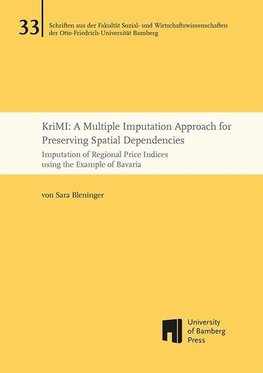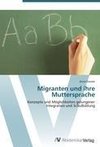
KriMI: A Multiple Imputation Approach for Preserving Spatial Dependencies
Multiple imputation is a method to handle the problem of missing values in a dataset. As it accounts for the uncertainty brought in by the missing data, it is possible to conduct reliable statistical tests after this method has been implemented.
Kriging...
Viac o knihe
Produkt je dočasne nedostupný
20.42 €
bežná cena: 23.20 €
O knihe
Multiple imputation is a method to handle the problem of missing values in a dataset. As it accounts for the uncertainty brought in by the missing data, it is possible to conduct reliable statistical tests after this method has been implemented.
Kriging uses neighbourhood effects to predict values of unobserved regions. It can be seen as an imputation technique. The unobserved regions are missing data points, and the kriging predictions are the imputations. Due to the fact of being a single imputation technique, no proper statistical inferences are possible after filling the dataset.
If spatially dependent data face the problem of missing data and a proper statistical inference is needed, a modelling of the spatial correlation in the multiple imputation model is needed. Here this is prevailed by implementing kriging in the model used for multiple imputation. We call the resulting method KriMI.
The exact problem can be found when looking at regional price levels in Bavaria. The Bavarian State Office for Statistics surveys the prices which are needed to compute the price index only in a few regions. The prices of the unobserved regions are treated as missing data.
- Vydavateľstvo: Otto-Friedrich-Uni
- Formát: Paperback
- Jazyk:
- ISBN: 9783863095239


 Ruský jazyk
Ruský jazyk 

 Anglický jazyk
Anglický jazyk 




 Nemecký jazyk
Nemecký jazyk 


